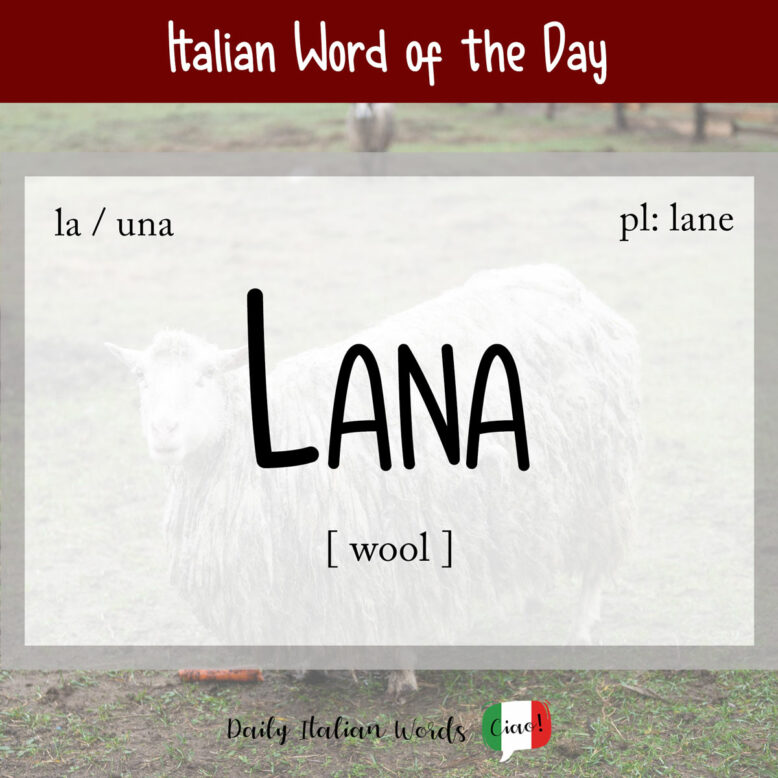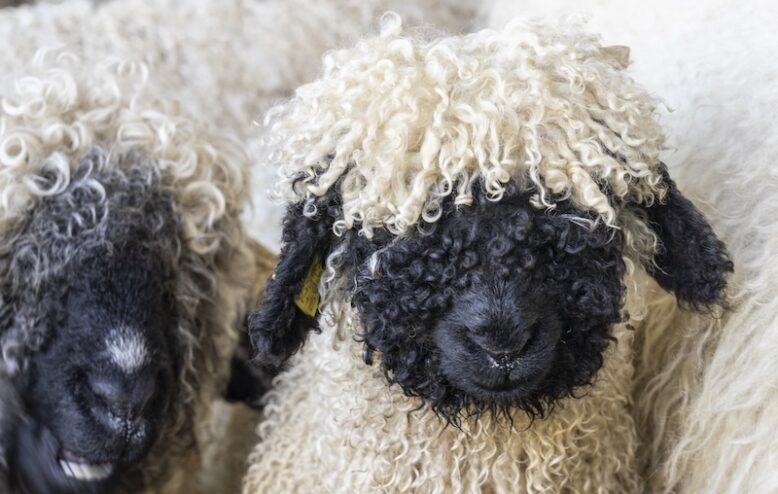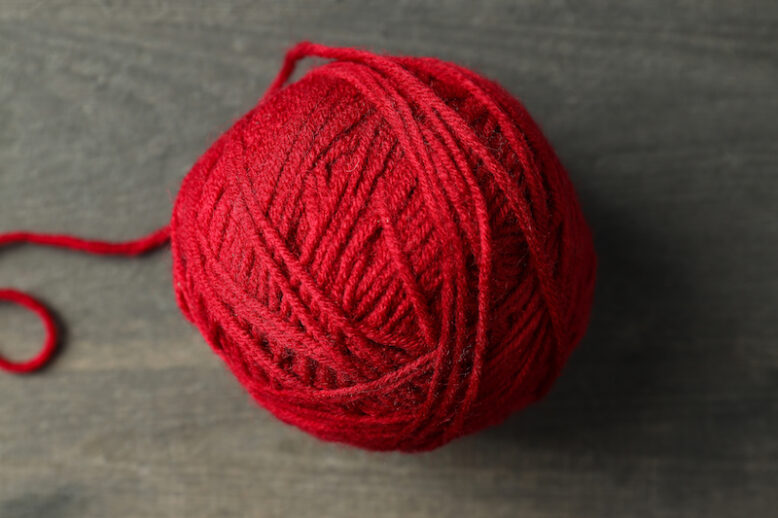The soft curly hair forming the coat of a sheep, goat or camel is known as wool in English, or lana in Italian.
lana
wool

Lana, which is a feminine noun, is derived from the Latin word of the same spelling and meaning. Below are its definite and indefinite articles:
- la lana = the wool
- le lane = the wools
- una lana = a wool
- delle lane = some wools
The expression di lana (of wool) is used to describe things that are made of wool such as clothing and blankets. The adjective lanoso (wooly / woolen), in a similar manner, describes things that are either made of wool or feel and look like wool.
Ho un maglione di lana che mi dà prurito.
I have a wool sweater that makes me itchy.
Quando fa freddo, mi piace avvolgermi in questa coperta lanosa.
When it’s cold, I like to wrap myself up in this wooly blanket.

Here are some different kinds of lana you might encounter in Italian:
- lana d’acciaio = steel wool
- lana cotta = boiled wool
- lana di legno = wood wool
- lana di roccia = mineral wool
- lana di scoria = HT wool
- lana di vetro = glass wool
- pura lana vergine = pure wool
- misto lana = wool blend
- lana di agnello = lamb’s wool
If you want to knit a wooly sweater, you can use a filo di lana (woollen yarn) and a gomitolo di lana (ball of wool/yarn).

Figuratively, lana can also refer to a collection of negative characteristics that define a person. For instance, you can say quei due ragazzi sono della stessa lana (literally “those two guys are from the same wool”) to imply that they come from the same negative background and share similar undesirable tendencies. By extension, it can also describe a person with a peculiar or undesirable personality.
Che lana quel ragazzo. Non mi fido di lui!
That guy’s such a scoundrel. I don’t trust him!
In botany, lana can sometimes be used to refer to the fine covering of hair on the leaves of certain plants.
According to the Dizionario italiano De Mauro, you may also hear it used to describe the fuzz that comes off clothing when shaken, or the dustballs that accumulate around furniture.
Idiomatic expressions containing ‘lana’
Essere una buona lana
Literal translation: to be a good wool
English meaning: to be a scoundrel
Essere una questione di lana caprina
Literal translation: to be a question of goat’s wool
English meaning: to be a futile argument, moot point, unproductive discussion
The phrase was coined by the Latin author Horace.
Heather Broster is a graduate with honours in linguistics from the University of Western Ontario. She is an aspiring polyglot, proficient in English and Italian, as well as Japanese, Welsh, and French to varying degrees of fluency. Originally from Toronto, Heather has resided in various countries, notably Italy for a period of six years. Her primary focus lies in the fields of language acquisition, education, and bilingual instruction.


